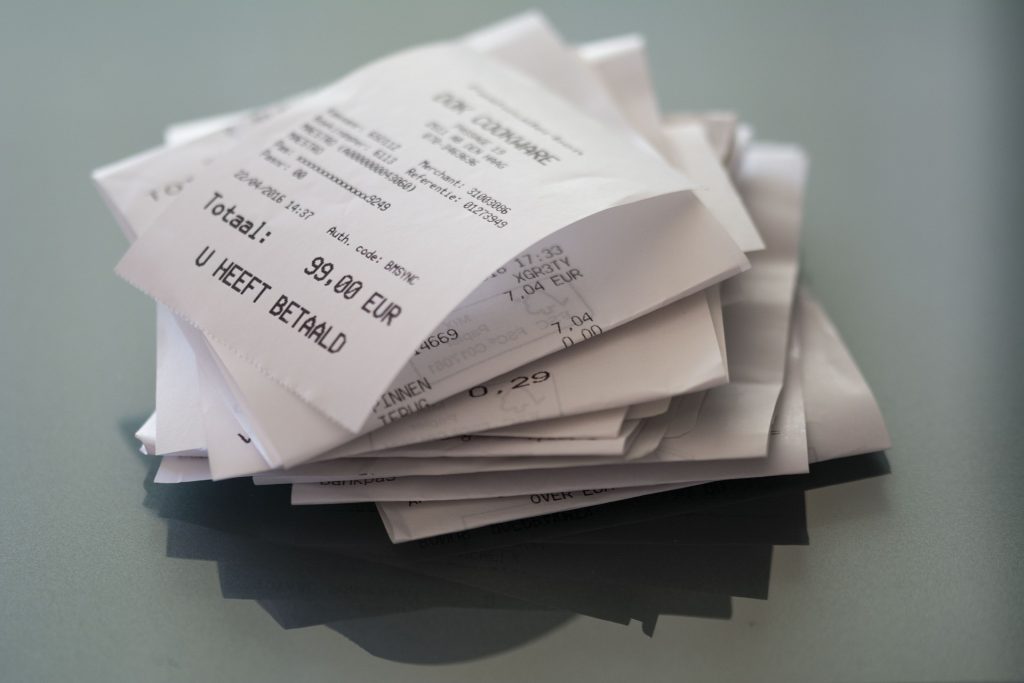The IRS allows you to choose any record keeping system for your business’ income and expenses. This means that you can keep records in a file cabinet or you can choose an electronic program. Either way, the choice is yours.
Depending on what business you are in, you may have to keep certain records for federal tax purposes. The IRS wants businesses to retain specific business documents including purchases, payroll, and other transactions. These records will support the entries in your books and on your tax return.
What kinds of financial records should I keep?
- Gross receipts: Income you receive for your business. Some documents include cash register tapes, deposit information, receipt books, invoices, and 1099 forms.
- Purchases: Items that you buy and resell to your customers. This includes the cost of raw materials or parts purchased to manufacture a finished product. Documents include canceled checks, proof of payment (electronic funds), cash register tapes, credit card statements, and invoices.
- Expenses: The costs that you and your employees incur. Your documents should show the amount paid and a description that shows that it was for a business expense. You can provide receipts, invoices, cash slips, and canceled checks.
- Travel, Transportation, Entertainment, and Gift Expenses: If your business provides this to employees, this can include meals, mileage, transportation, and more.
- Assets: Property that you own and use for your business. Documents can include deductions, the selling price, expense of the sale, and more.
- Employment tax records
How should I store financial records?
It’s entirely up to you in regards to storing your documents, however, you will want to make sure the records are stored in a safe place. Employees, managers, and business owners can acquire many receipts throughout the year, so keeping them organized will be the key to your success. Although you can file hard copies of receipts, that will end up taking up a lot of storage space and would require a high amount of organizational skill. Instead, getting an electronic storage system will be a lot easier for you and employees. The IRS only has a few requirements when it comes to an electronic system:
“General Requirements. (1) An electronic storage system must ensure an accurate and complete transfer of the hardcopy or computerized books and records to an electronic storage media. The electronic storage system must also index, store, preserve, retrieve, and reproduce the electronically stored books and records.”
That being said, it will be easy to store your data electronically. You will no longer have to deal with paper receipts. With electronic systems, you and employees can upload receipts in real time. Finally, there will no longer be a need for hard copies because the IRS accepts electronic documents.
Timesheets.com allows your employees and managers to upload their expense data and receipts. Storing receipts has never been easier. These records are stored automatically and include downloadable receipts that are accessible at any point.







2 Responses
It is interesting that the IRS is open to you using electronic or paper records for tracking your receipts and other financial records. My wife and I are considering starting an online business and we are looking at the different software available to help with the financial side of the process. If we do start our own business, we may also consider a bookkeeping service so we don’t have to manage it ourselves.
Yes! It definitely makes thing easier, and storing your expenses online is a great way to keep all of your paperwork organized. If you are looking into a time tracking service for payroll, billing, or expenses, I do recommend trying timesheets.com to see if it’s the right fit for your business.